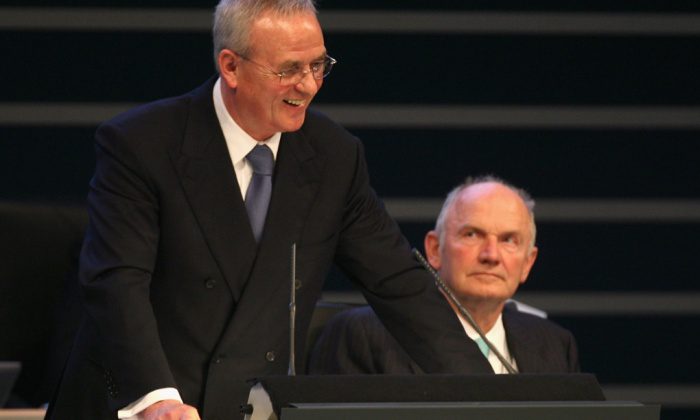“I’m at a distance from Winterkorn.”
Those six words spoken by Ferdinand Piëch, the chairman of the supervisory board at VW, began a fascinating saga that has gripped all that follow the automotive industry over the past two weeks. He was speaking of course of Martin Winterkorn, the CEO of VW, and until that point his presumed successor as chairman of the supervisory board.
But VAG has been doing great of late! Yes, it has indeed, which is why this news came as a big shock to the automotive world. After all, under Winterkorn’s leadership since 2007, the group’s sales have nearly doubled and net profits nearly trebled. He also presided over a successful take-over of Porsche, finally steered SEAT in a reasonable direction (something Piëch hailed to do as CEO) and brought squarely VW back to the position of market leader in Europe.
What is Piëch’s problem then? Piëch’s beef with the way Winterkorn has managed VAG is twofold. First, if you look closely at VAG you’ll notice the Volkswagen brand itself is not doing so great. While Audi’s profit margin in 2014 was 9.6% and Skoda’s was 7.2%, it was only 2.5% for VW, well below the 6% it was a few years ago. In addition, despite the early positive signs VW’s relaunched effort in the US has stalled of late, hurt badly by unexciting (even by american standards) cars and a lack of US-appropriate SUVs and crossovers. Piëch’s second criticism is harder to verify, but he feels Winterkorn lacks the vision to take VAG into the next decades, when the car industry will be facing disruptions from the likes of Tesla, Google and Apple.
So, who is right? It is not a secret VW has had a hard time cracking the US market, and on this point Piëch is right – more needs to be done, and quickly. Still, the solution in the form of new models is already well on the way: a new US-specific 7-seater crossover, a larger Tiguan, a refreshed Passat. This, coupled with the halo of the Golf winning the North American Car of the Year and the industry turning towards turbocharging, where VW has great form, should help the brand gain market share. Similarly, the low profit margins in 2014 were probably driven by the rollout of the industry-leading MQB platform, and once all cars have switched over (new Passat, Touran, Polo, Tiguan) the savings from economies of scale should drive the margins back up. And finally – the margin may be small, but at least it’s positive, unlike most of VW’s rivals.
Where does it leave Winterkorn? The latest development in the saga came on April 17, when Winterkorn won the backing of Volkswagen’s directors and stakeholders to continue as CEO. This leaves Piëch in a severely damaged position within the company, the worst he’s probably been in since he stepped down as CEO. It is too early to discount the old bruiser yet (of whom Bob Lutz famously said: “He’s not a pleasant man and I’d hate to work for him”), but right now it seems that Winterkorn has a good shot at claiming the Steel & Aluminum Throne at the head of the VAG Empire.









